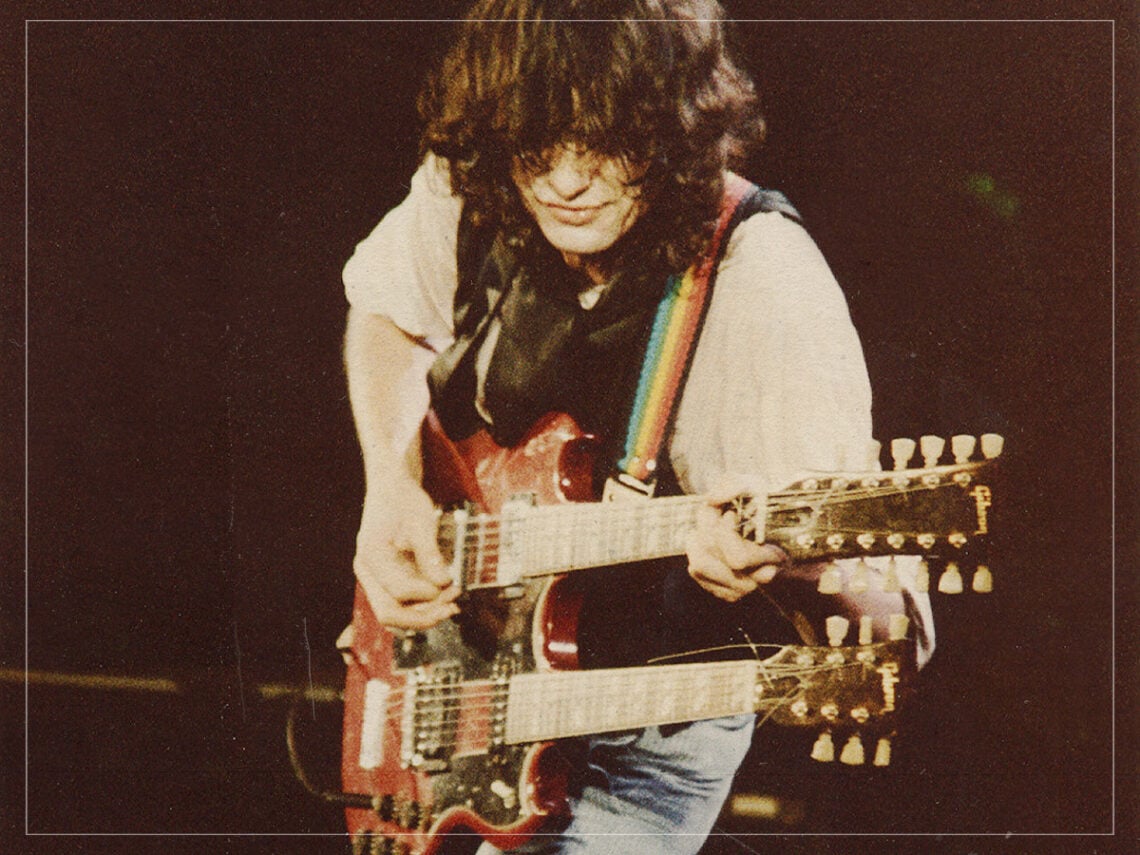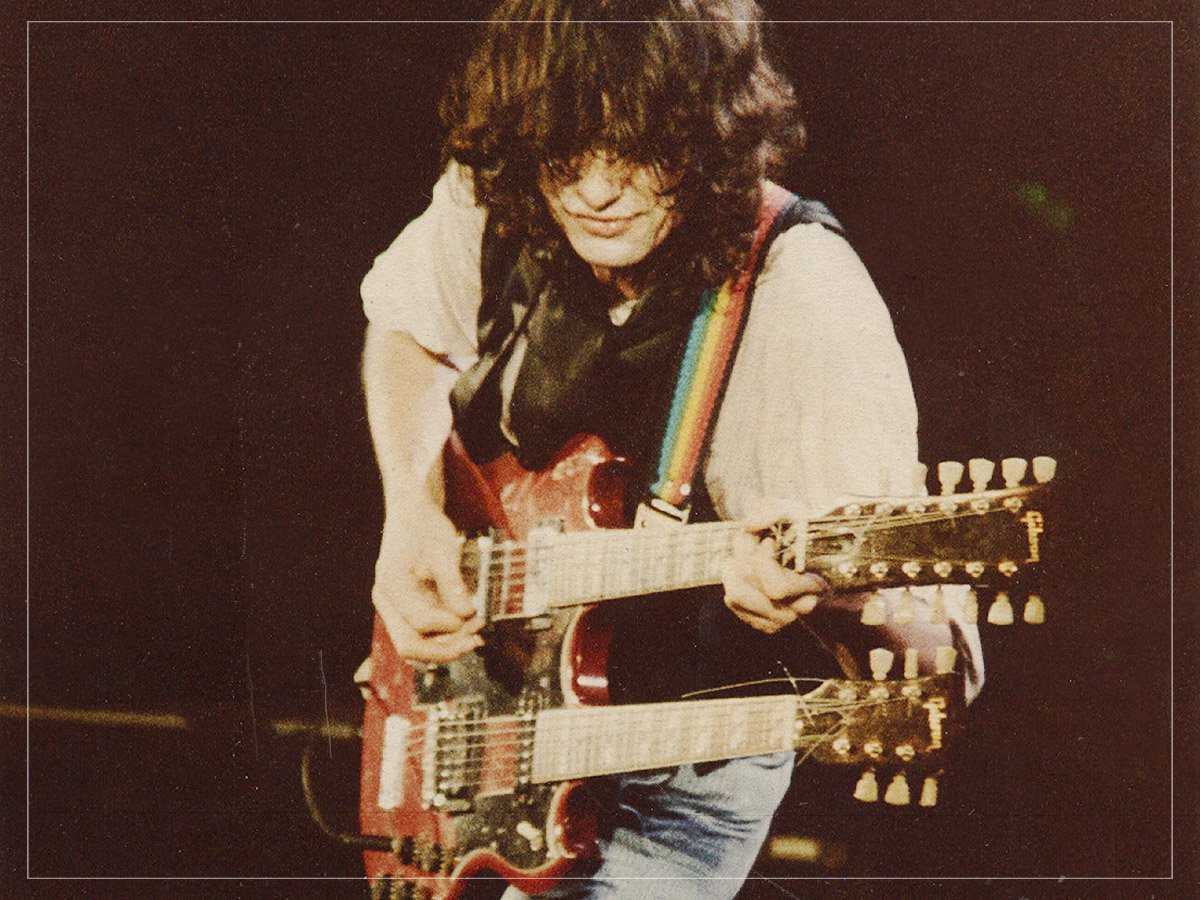
(Credits: Far Out / Dana Wullenwaber)
Fri 26 September 2025 19:30, UK
Anyone would give their left leg to write half of the guitar riffs that Jimmy Page was able to create in Led Zeppelin’s prime.
Every member of the band was equally important for bringing their own magic to the table, but Page was the true riff master, and without him in the group, the whole thing would fall apart. There were bound to be ups and downs throughout their career, but even Page had to admit a few of their albums couldn’t have been any better if they had tried.
Then again, most of Zeppelin’s albums weren’t really meant to sound the same. While most of their early work involves them trying to pay tribute to their bluesy heroes, the lion’s share of their work from Led Zeppelin III onward was all completely different animals. Houses of the Holy fits pretty snuggly in their experimental phase, Physical Graffiti is the culmination of everything they had built toward for years, and even if In Through the Out Door wasn’t the record Page wanted, it was important for them to take chances like that.
When looking at each of the records, you can clearly tell when Page has the material down to a science. Their first handful of records were already ideas Page was working on as the band were finalising their lineup, and even when they were much further into their career, the amount of guitars on Presence alone made it seem like Page was allowed to run wild whenever he got to the studio every day.
Even by Zeppelin standards, though, the most concentrated album of their career is the one that actually doesn’t have their name on it. Although their untitled fourth record was a way of sticking it to their record company in many respects, the fact that they crammed eight masterpieces on one record is staggering for any other group.
They still found time to pay tribute to their musical heroes on tracks like ‘When the Levee Breaks’, but the real power came from them doing away with their covers. ‘Stairway to Heaven’ and ‘Black Dog’ might be the ones that everyone talks about, but listening through the album from back to front, the lower lights like ‘Four Sticks’ and ‘Misty Mountain Hop’ are still among the weirdest detours that the band ever went down.
Page had a firm basis for what he wanted Led Zeppelin to be, but even for their track record, he knew that their fourth record was pretty much bulletproof, saying, “I think every track on it has proved to be an absolute classic. In the rehearsal, Robert Plant was very quiet while he wrote most of the lyrics; then he just let fire!”
And it’s not like the rest of the world doesn’t agree, either. The album itself might not be that long, but this was the first time they captured perfection on record. ‘Whole Lotta Love’ and ‘Ramble On’ were all building to something bigger, and listening to the first side of this album alone would have been enough to place them in the rock and roll heavens, especially when the group kicks into ‘Rock and Roll’ or the guitar solo starts in the midsection of ‘Stairway to Heaven’.
Not everyone necessarily has to follow Zeppelin’s playbook if they want to become rock and roll legends, but the reason why half of the Les Paul-wielding rock stars are able to flourish today is because of albums like this. Zeppelin weren’t trying to impress anyone, and by playing for only themselves, they came out with the best rock and roll music that anyone could have asked for.
Related Topics
The Far Out Led Zeppelin Newsletter
All the latest stories about Led Zeppelin from the independent voice of culture.
Straight to your inbox.
